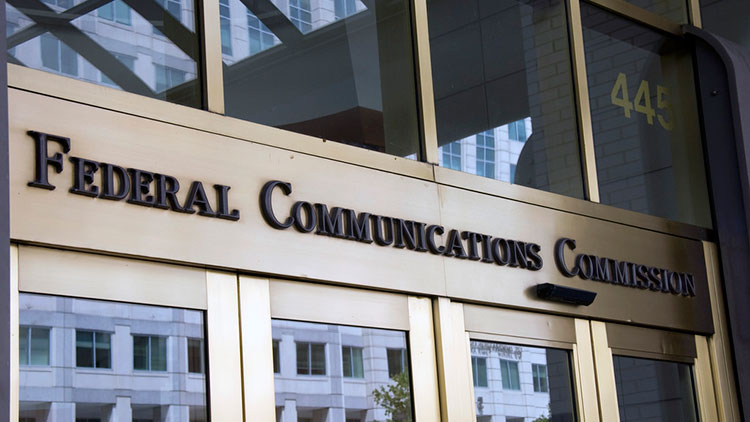Exclusive: Trump Team Embraces FCC Remake Blueprint

The smarter way to stay on top of broadcasting and cable industry. Sign up below
You are now subscribed
Your newsletter sign-up was successful
The incoming Donald Trump Administration is said to have signed off on an approach to remaking the Federal Communications Commission offered by the FCC transition team majority, one that squares with the deregulatory philosophies of FCC Republicans Ajit Pai and Michael O'Rielly, who will be two of the three Republican votes on the commission, and one of them possibly the chair.
That approach would be to restructure FCC bureaus to better reflect the convergence of the digital age as a first step, and, eventually, move functions deemed "duplicative," like, say, competition and consumer protection, to other agencies, particularly the Federal Trade Commission.
While some have described the plan as one to eliminate the FCC, and certainly many if not most of its functions could be reapportioned, landing team members Jeff Eisenach and Rosyln Layton have argued that what remains would be "a more coherent and streamlined " agency that "would more effectively serve the goals of consumers, competitors, and Congress."
Related: Senate to Investigate Russian Election Interference Intel
According to sources familiar with the meeting, Trump officials got together with the FCC transition team Friday to vet their regulatory/deregulatory blueprint for the agency as the days dwindle to Inauguration Day on Jan. 20.
The majority of the FCC transition team members, which includes Eisenach, Layton and Mark Jamison, are American Enterprise Institute alums who share the same regulatory philosophy. But there had been some question as to whether the President-elect, who has been critical of some big media companies – Comcast/NBCU, or a proposed AT&T/Time Warner – as too big and in need of government attention, might go another direction after Republic wireless founder David Morken was tapped to join the team a couple of weeks ago.
While that majority are think tank vets in the conservative Republican mode, Morken clearly has a populist streak, or at least a consumer-empowering marketing approach. “The cellular emperor has no clothes – smart consumers have been clamoring for someone to unlock the value of our home and office networks for years," he said when launching Republic's low-cost hybrid WiFi/cellular approach in 2011.
The smarter way to stay on top of broadcasting and cable industry. Sign up below
Morken also has an FCC connection dating back to at least 2006, when future Democratic FCC Chairman Julius Genachowski was named to Bandwidth.com’s advisory board. In addition, high-speed broadband guru Blair Levin, who was Genachowski’s chief architect of the national broadband plan and incentive auction, has been a longtime advisor to Republic.
According to a source, Morken's minority proposal included among other things, preserving network neutrality rules, making the FCC a cabinet-level agency with increased funding, and suspending the incentive auction. Trump is on the record against the FCC's Open Internet order.
The majority plan was said to dovetail with comments from Eisenach and Layton to Congress in 2014 as AEI scholars. Their two main conclusions were that "the historical silo-based approach to communications regulation is inapposite to the modern communications ecosystem. Second, the Federal Communications Commission’s (“FCC,” or “Commission”) functions are largely duplicative of those of other agencies."
Related: Spicer Brands Press Attacks on Trump Reckless
But it also takes a page or two from a regulatory reform proposal of Democratic FCC chair Bill Kennard back in the late 1990s, according to the source.
"Telephony is regulated one way, cable a second, terrestrial broadcast a third, satellite broadcast a fourth. As the historical, technological, and market boundaries distinguishing these industries blur, the statutory differences make less and less sense," Kennard said of his own plan for remaking the FCC in the digital age. "Maintaining them will likely result in inefficient rules that stifle promising innovation and increase opportunities for regulatory arbitrage."
Of course, both Republicans and Democrats on the Hill have said it is past time to raze the regulatory silos, but differ on what should replace them.
“I think it’s encouraging that the Trump transition team is looking to do more than tinker around the edges with respect to reforming the FCC and communications policy," said Free State Foundation president Randolph May. "And it’s encouraging that the incoming Trump Administration apparently agrees. There is an opportunity now, not to be wasted, to make some fundamental changes in the FCC’s structure and the way it operates. Of course, Congress will need to be involved in effecting some of the changes, and some can be accomplished by the agency itself. Those favoring the status quo with its institutional pro-regulatory bias will try to characterize any meaningful changes as ‘radical,” but what truly is radical is not to acknowledge the need to adopt substantial reforms in the face of such substantial changes in the marketplace."
Contributing editor John Eggerton has been an editor and/or writer on media regulation, legislation and policy for over four decades, including covering the FCC, FTC, Congress, the major media trade associations, and the federal courts. In addition to Multichannel News and Broadcasting + Cable, his work has appeared in Radio World, TV Technology, TV Fax, This Week in Consumer Electronics, Variety and the Encyclopedia Britannica.

